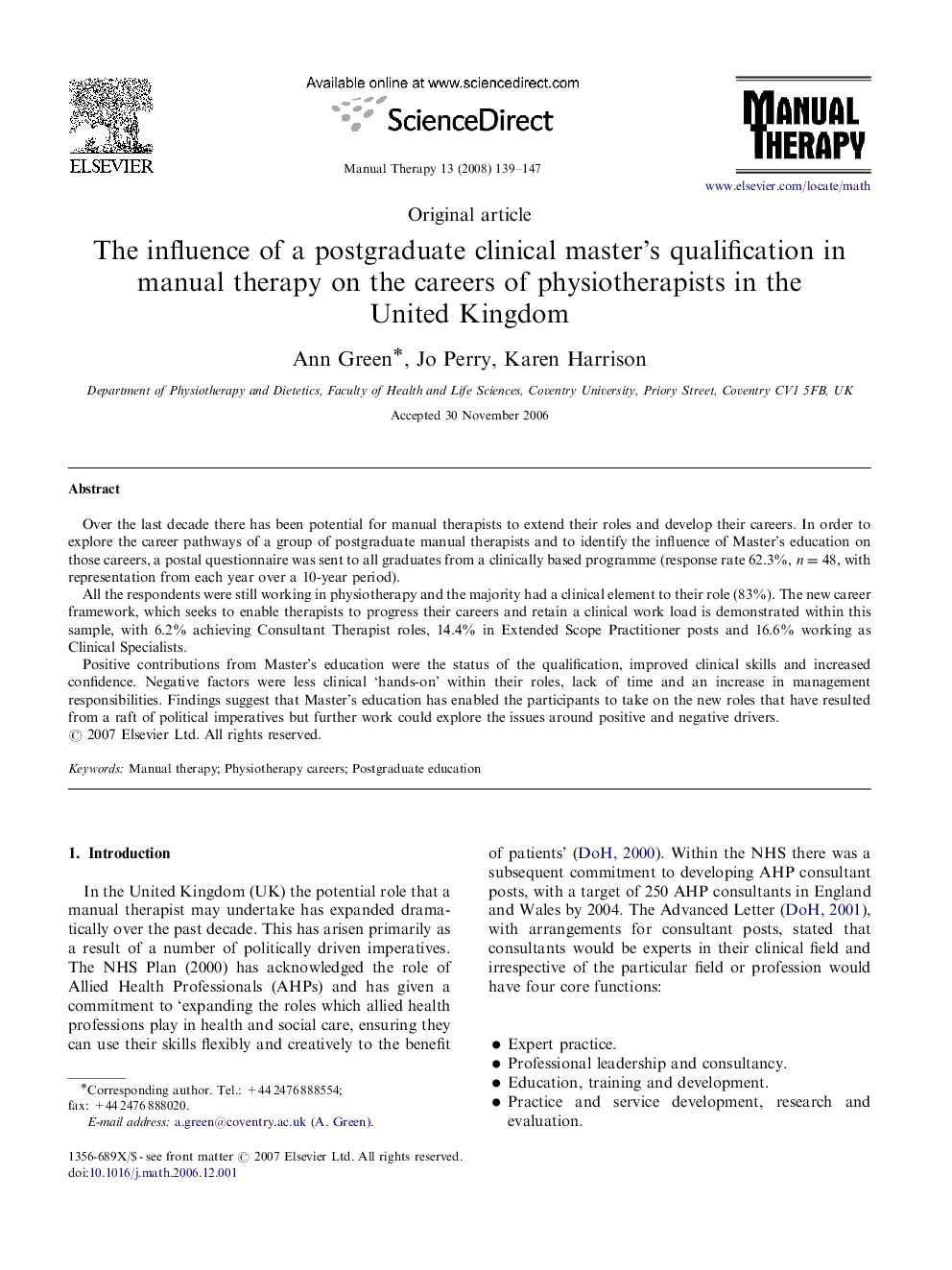| Article ID | Journal | Published Year | Pages | File Type |
|---|---|---|---|---|
| 2625843 | Manual Therapy | 2008 | 9 Pages |
Over the last decade there has been potential for manual therapists to extend their roles and develop their careers. In order to explore the career pathways of a group of postgraduate manual therapists and to identify the influence of Master's education on those careers, a postal questionnaire was sent to all graduates from a clinically based programme (response rate 62.3%, n=48n=48, with representation from each year over a 10-year period).All the respondents were still working in physiotherapy and the majority had a clinical element to their role (83%). The new career framework, which seeks to enable therapists to progress their careers and retain a clinical work load is demonstrated within this sample, with 6.2% achieving Consultant Therapist roles, 14.4% in Extended Scope Practitioner posts and 16.6% working as Clinical Specialists.Positive contributions from Master's education were the status of the qualification, improved clinical skills and increased confidence. Negative factors were less clinical ‘hands-on’ within their roles, lack of time and an increase in management responsibilities. Findings suggest that Master's education has enabled the participants to take on the new roles that have resulted from a raft of political imperatives but further work could explore the issues around positive and negative drivers.
